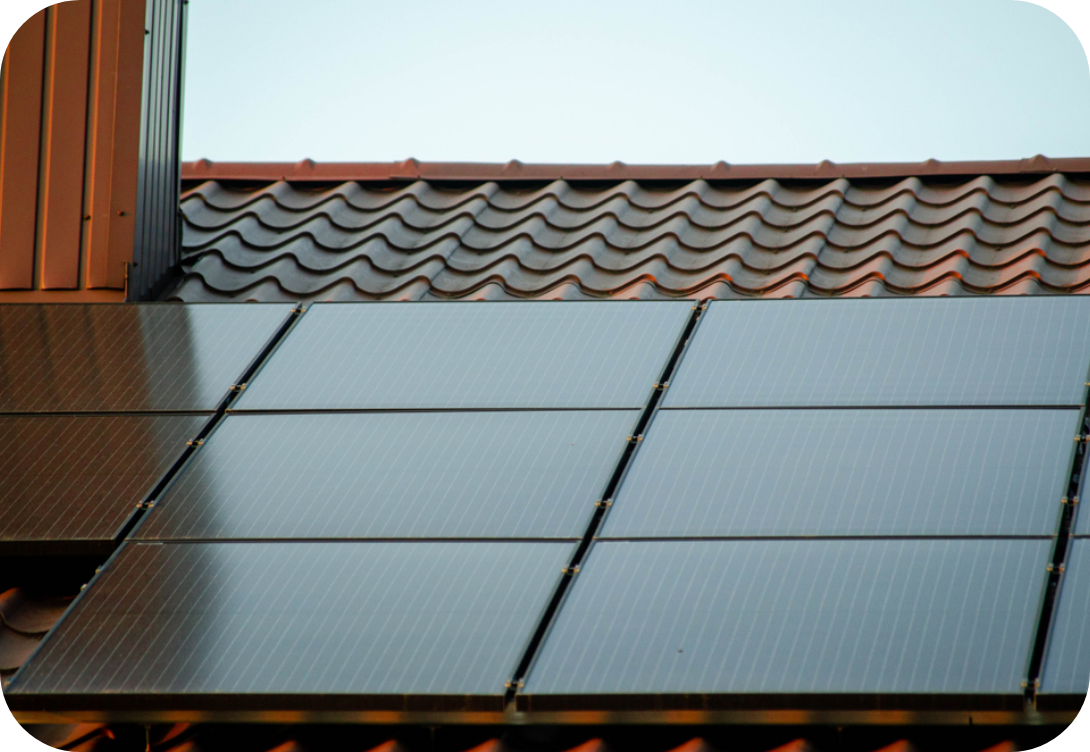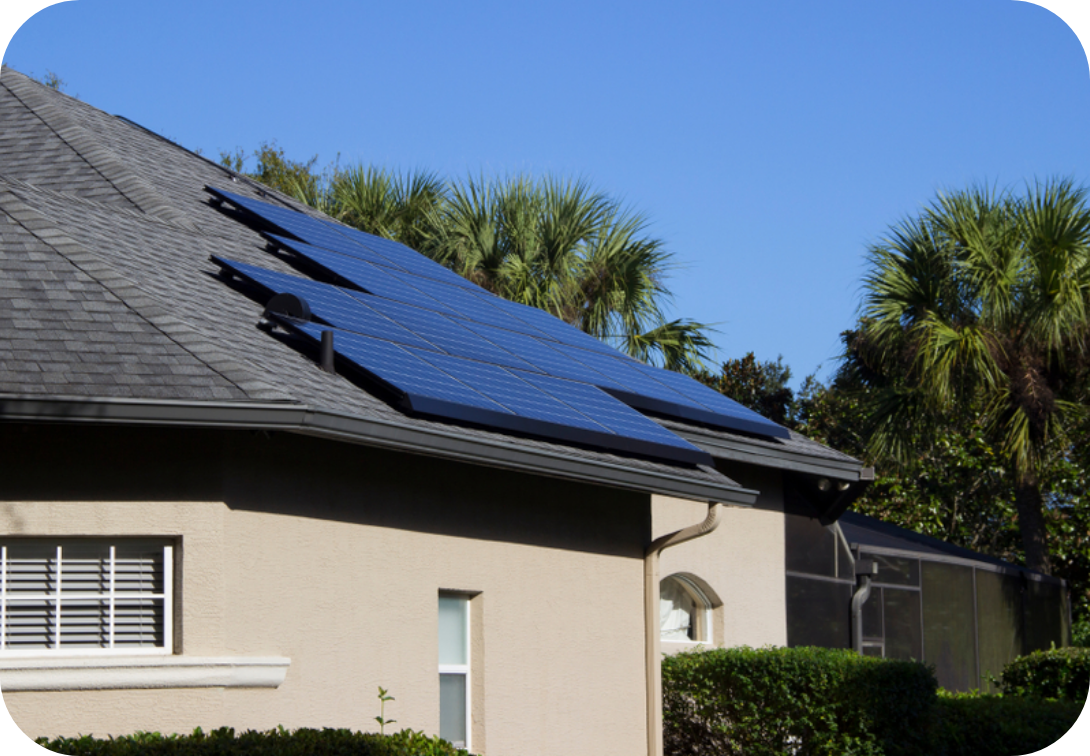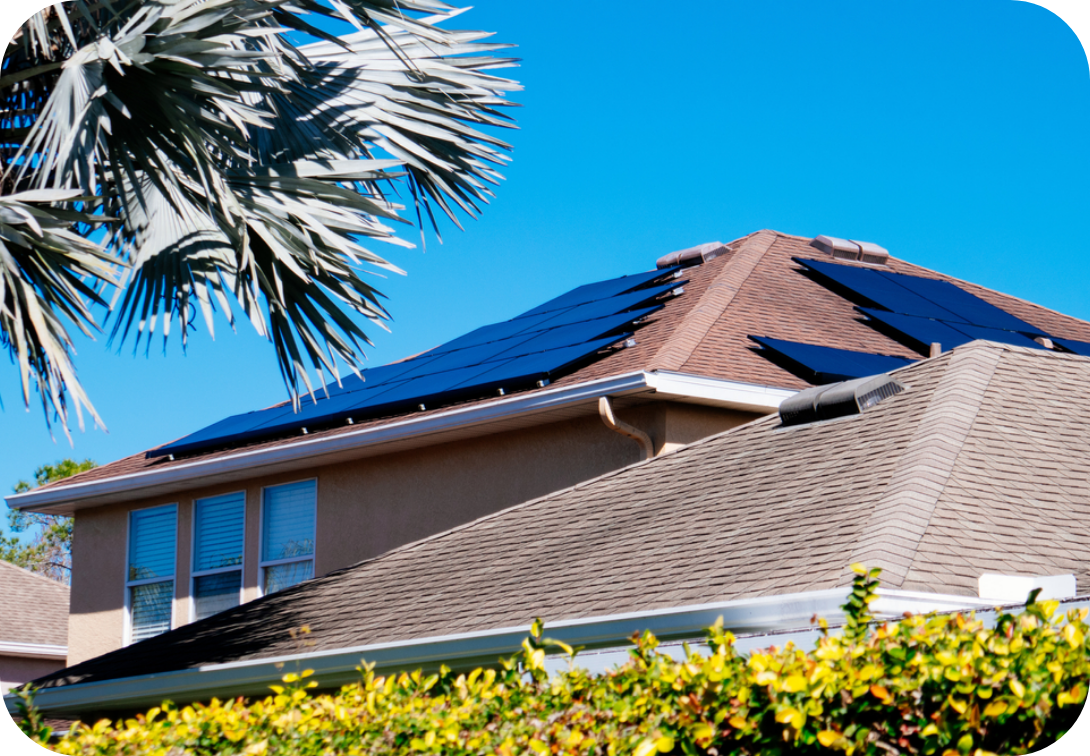Is Solar Worth the Cost?

Solar is becoming increasingly popular throughout the country as many homeowners make the switch from traditional grid energy. But are solar panels worth the cost? While solar panels provide benefits such as reduced emissions, lower utility bills, and higher home values, these benefits can vary from one home to another.
We put together this article to help homeowners learn more about the benefits and costs of solar to determine if solar panels are worth it where they live.
What Components Help Homes Benefit the Most From Solar Panels?
Not every home will receive the same benefits from solar panels, but a few factors can help you determine if solar is worth the cost.

Location
Homes in locations with plenty of sunlight will benefit most from solar panels. Your solar system can still produce energy in less-sunny conditions, but your panels may be less effective if your roof doesn’t receive much sunlight. To get the most from your solar panels, your roof should also be free from obstructions like tall buildings or trees.
Energy Bills and Consumption
Solar panels can save you money if your monthly utility bill is consistently high. While a solar system is an investment, it can keep your electricity bill low and potentially save you thousands of dollars in the long run. You can discuss your electricity bill with a solar installer to determine if a solar system will be worth the investment.
Net Energy Metering
Sometimes solar panels produce more energy than your home needs. You may be able to sell your excess power back to utility companies depending on where you live. Many states offer net metering programs that credit solar owners for their extra energy. With enough credits, you may receive monetary rewards.
Federal, Local, and State-Level Tax Incentives
Everyone can benefit from federal solar tax incentives, but many state and local governments offer some incentives of their own. These incentives make solar systems more affordable by reducing their overall cost.
Homeowners Insurance Coverage for Solar Panels
Your homeowner insurance provider may cover solar panels. It’s a good idea to discuss your plan with your provider to ensure your panels are covered before purchasing a system.

Benefits of a Solar System
Due to their many cost and energy-saving benefits, solar panels are worth it for many households. We’ll go over some of these benefits below.
Sustainable Energy
Solar is a renewable energy source that doesn’t emit waste into the environment like fossil fuels. When you switch to solar, you reduce your carbon footprint by decreasing your dependence on non-renewable resources that are quickly being depleted. Instead, you use the energy produced on your roof that doesn’t contribute to harmful environmental emissions.
Lower Utility Bills
Homeowners nationwide spent an average of $122 per month on their electricity bills in 2021. This is $5 more per month than the previous year. The price of fossil fuels continues to rise, but switching to solar panels can save money. Using solar in your home reduces your need for expensive fossil fuels. You may also have excess energy to sell back to your utility company.
Increased Home Value
If you’re looking for a way to increase your home’s value, solar could be the answer. Homes with solar panels tend to sell quicker throughout the U.S. Studies show buyers are willing to pay more for a house with a pre-installed solar system.
Tax Breaks and Incentives
As mentioned above, the federal and many state governments offer tax incentives for solar systems. Federal incentives include the Federal Solar Tax Credit, which provides a 30% credit for the cost of a solar system. Every state has different incentives, but common ones include tax credits and rebates. Many utility companies also provide rebates for customers who switch to solar.
Solar Battery Storage
Homes with battery backup systems can be better prepared for power outages. Your battery will store excess solar energy that you can use to keep your lights on during blackouts. The sun will recharge your battery, so it’ll be ready for the next outage.
Cons Of A Solar System
Solar panels aren’t a good fit for everyone. It may be better to stick to grid energy, depending on your financial situation or where you live. Consider these factors to determine if solar is worth it for your home.
Your Roof
Solar installation can be challenging if your roof isn’t the right size and slope. A solar system may not work for your home if your roof is oddly shaped or has too much shade. Additionally, roofs should have a slope between 15 and 40 degrees, as steep roofs make it difficult for installers to mount equipment.
Space
Solar panels can require a lot of space depending on how much energy you want to produce. If your roof is too small, you may be able to put some panels in your yard. However, this will mean you lose some yard space. You can still purchase a smaller system if you don’t have a large roof — it just won’t produce as much energy as bigger systems.
Weather Conditions and Sun Exposure
A solar system might not be worth the money if you live in a climate that doesn’t get a lot of sunlight. Solar panels need sunlight to generate power. If you live somewhere with many cloudy days, your system may not produce as much energy.
Tax Breaks May Not Be Available in Your Area
Some states don’t offer tax breaks or incentives for purchasing solar systems. While you can still qualify for the federal tax credit, a system might not be in your budget if you don’t get additional savings.
Solar Panels Can’t Move With You
Once a solar system is installed, it can’t be transferred to a new home. If you move, you might have to purchase a system for your new home if you want to continue using solar. However, because panels increase home value, you may be able to cover the cost of a new system with the extra money you received from your old home.
Do the Benefits of Solar Panels Outweigh Their Costs?
For many people, the benefits of solar panels outweigh how much solar costs. Solar panels may help you reduce your carbon footprint, save money on utility bills, and have more control over your energy usage.

How Can Much Money Solar Panels Save?
Studies estimate that the average homeowner can save between $20,000 and $75,000 over the lifetime of a solar system. Exact savings may depend on where you live, the price of electricity, and how much sunlight your home receives.
How Solar Systems Help Homeowners Save
Despite some of the potential cons of going solar, solar benefits can really add-up over the lifetime of a system. Learn more about how solar savings work.
Conclusion: Is the Cost of Solar Panels Worth it?
Ultimately, several factors determine whether solar panels are worth it where you live. Solar panels have many benefits but may only be worth it in the right circumstances. A solar system can save you money in the long run if you live in an area with several sunny days. The best thing you can do is contact a solar company like Axia Solar. We can discuss pricing options with you to determine if solar is the right fit for your home.